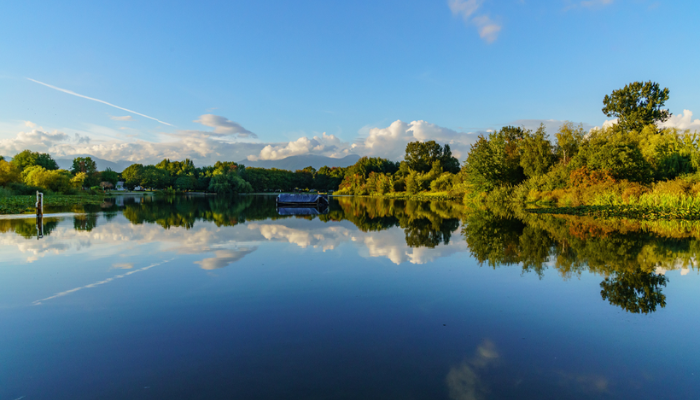
When discussing places, particularly renowned geographical landmarks, capitalization often becomes a point of confusion. A common search phrase that highlights this issue is: “lake texoma should be capitalized.” Whether you’re a grammar enthusiast, a student, or a content creator trying to improve your writing or SEO skills, understanding the rules and reasoning behind capitalization is essential.
In this article, we will explore why Lake Texoma should be capitalized, what makes it a proper noun, and how this small detail impacts everything from grammar to search engine optimization.
What Is Lake Texoma?
Before diving into the grammar rules, it’s crucial to understand what Lake Texoma actually is.
Geographical Significance
Lake Texoma is one of the largest reservoirs in the United States. It straddles the border of Texas and Oklahoma, which is how it gets its name—“Tex” from Texas and “Oma” from Oklahoma. Formed by the Denison Dam on the Red River, it serves multiple purposes: flood control, hydroelectric power generation, water supply, and recreation.
Tourist Destination
The lake attracts millions of tourists each year for activities such as:
- Boating
- Fishing (especially striped bass)
- Camping
- Hiking
- Watersports
It’s a hub of outdoor adventure and local tourism, and thus a well-known proper place name.
Why “Lake Texoma Should Be Capitalized”
The core reason behind capitalizing “Lake Texoma” lies in basic English grammar rules.
Understanding Proper Nouns
In English, proper nouns refer to specific names of people, places, or things. They are always capitalized. “Lake Texoma” is not just any lake; it is the official name of a specific location, making it a proper noun.
Grammar Rule: Capitalize Specific Places
According to most authoritative grammar style guides (like The Chicago Manual of Style and APA), specific geographic features must be capitalized:
- Correct: Lake Texoma
- Incorrect: lake texoma
Just like you wouldn’t write “grand canyon” or “mississippi river” in lowercase, you shouldn’t write “lake texoma” without capitalizing it.
When People Search “Lake Texoma Should Be Capitalized”
This keyword reveals an interesting search intent. Users who type this phrase are likely:
- Unsure about the grammatical rules around capitalizing place names.
- Writers or students looking for help with proper formatting.
- SEO professionals verifying keyword usage.
This means the search is informational, and they’re seeking clarity and authority on the topic. That’s why it’s important to give both grammatical and contextual justifications.
Common Mistakes Involving “Lake Texoma”
1. Lowercase Usage in Articles or Essays
Incorrect: We went fishing at lake texoma last summer.
Correct: We went fishing at Lake Texoma last summer.
2. Overcapitalization in Generic Usage
Incorrect: The Lake Is Beautiful, Especially Texoma.
Correct: The lake is beautiful, especially Lake Texoma.
Use capitalization only when referring to the specific name, not the generic noun.
SEO Implications: Why Capitalization Matters in Content Writing
You might be wondering—what does capitalization have to do with SEO? Quite a bit, actually.
Google Understands Case Sensitivity, but Users Don’t Always
While Google’s search engine is not case-sensitive, users often search the exact phrase “lake texoma should be capitalized“ to verify if they are correct. Optimizing content to match this phrase verbatim while also offering semantic value increases your chances of ranking higher.
Semantic SEO Optimization Tips
- Use Variations: Mention both lowercase and capitalized variations of the keyword to cover a wider audience.
- Answer the Question Clearly: Place the answer (“Yes, Lake Texoma should be capitalized”) early in the content.
- Add Structured Data (If Used in a Blog/Website): FAQs and How-To schema can enhance visibility.
- Use Internal Linking: Link to grammar guides, maps, or local tourism pages for user value.
Proper Noun vs. Common Noun: A Quick Guide
| Type of Noun | Example | Capitalized? |
| Proper Noun | Lake Texoma | ✅ Yes |
| Common Noun | lake | ❌ No |
| Proper Noun (Person) | George Washington | ✅ Yes |
| Common Noun (Person) | president | ❌ No |
This simple comparison helps clarify why Lake Texoma fits the proper noun category and should be capitalized.
Educational Context: How to Teach Capitalization with Lake Texoma
For teachers or homeschoolers, using “Lake Texoma” as a case study is an excellent way to introduce capitalization rules to students. Try the following exercises:
Classroom Activity: Capitalization Sort
Create a list of nouns and ask students to sort them:
- river
- Lake Texoma
- mountain
- Rocky Mountains
- lake texoma
Then, review the list and correct the errors together.
Writing Prompt:
“Write a paragraph about your trip to Lake Texoma. Be sure to use proper capitalization throughout.”
Real-World Usage: Style Guides and Publications
Leading publications like National Geographic, The New York Times, and travel magazines always capitalize Lake Texoma when referring to the destination. Even Wikipedia and Google Maps follow this rule. These sources establish the authoritative precedent that Lake Texoma should be capitalized.
How to Properly Use “Lake Texoma” in Writing
Here are some examples of how to correctly incorporate “Lake Texoma” into your writing:
✅ Correct:
- Lake Texoma is located on the border of Texas and Oklahoma.
- I caught a record-breaking bass at Lake Texoma.
- The sunsets over Lake Texoma are breathtaking.
❌ Incorrect:
- lake texoma is popular for camping.
- I visited the Lake Texoma, and it was fun.
- My family loves lake Texoma.
FAQs About Capitalizing “Lake Texoma”
Q1: Should I capitalize “lake” in “Lake Texoma”?
A: Yes. Since “Lake Texoma” is a proper noun, both “Lake” and “Texoma” should be capitalized.
Q2: Is “lake texoma” a common noun?
A: No. It is a proper noun, referring to a specific lake, and should be capitalized.
Q3: Does it matter in SEO if I write “lake texoma” or “Lake Texoma”?
A: Technically, search engines treat them similarly, but using the correct form builds credibility, authority, and user trust. Plus, exact match keywords like “lake texoma should be capitalized” can perform better with semantic optimization.
Q4: What if I use “Texoma lake” instead?
A: That would be grammatically incorrect. The correct name is Lake Texoma, and reversing it changes the proper noun format.
Conclusion: Lake Texoma Should Be Capitalized—Always
To wrap it all up, the phrase “Lake Texoma should be capitalized” is not just grammatically accurate—it is essential for clarity, proper writing, academic standards, and even SEO performance.
Whether you’re working on an essay, travel blog, or Google-optimized content, always remember:
- Lake Texoma is a proper noun.
- Proper nouns must be capitalized.
- Correct usage helps both readers and search engines understand your content.
So the next time you’re writing about one of America’s favorite lakes, do it right: Lake Texoma—capitalized and correct.




